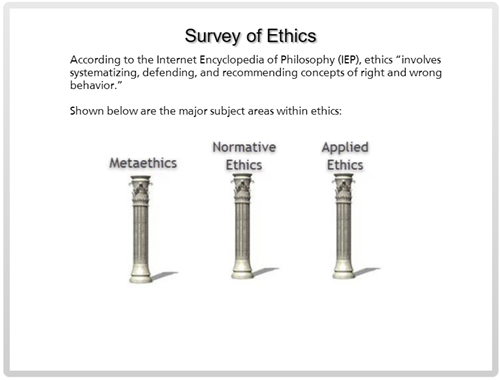Module 2
Warm-Up Exercise: Freddie & the Bunnies
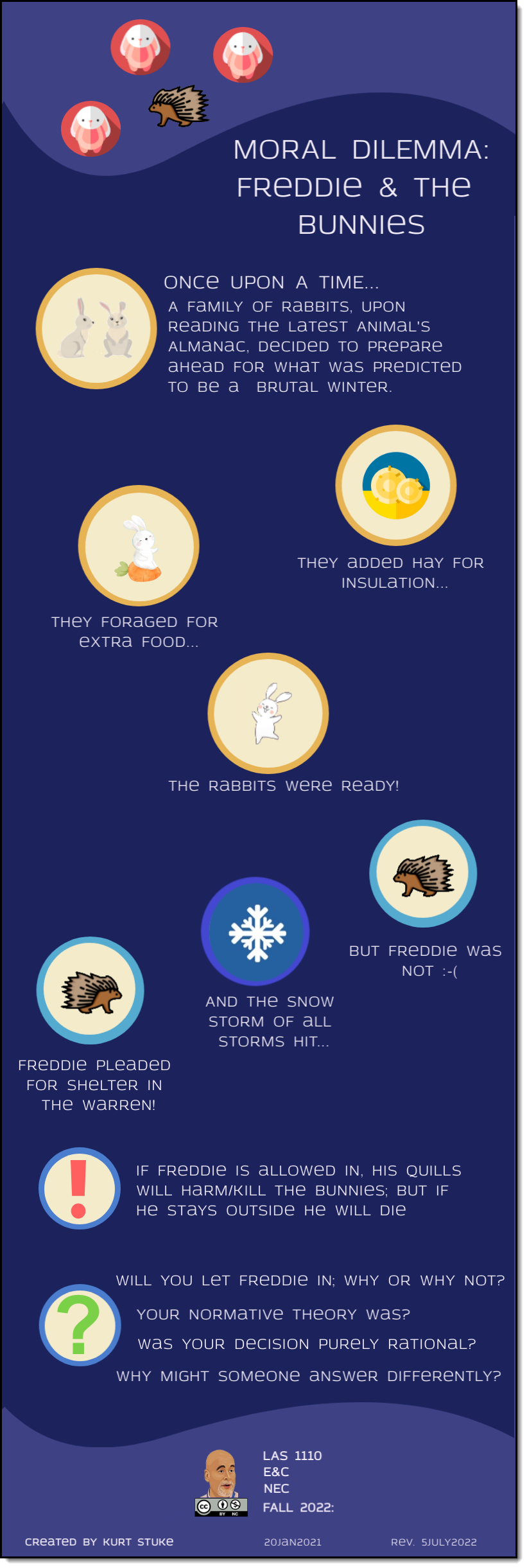
What are some of the competing perspectives as reflected in the moral scenario above?

How might businesses use these same perspectives?
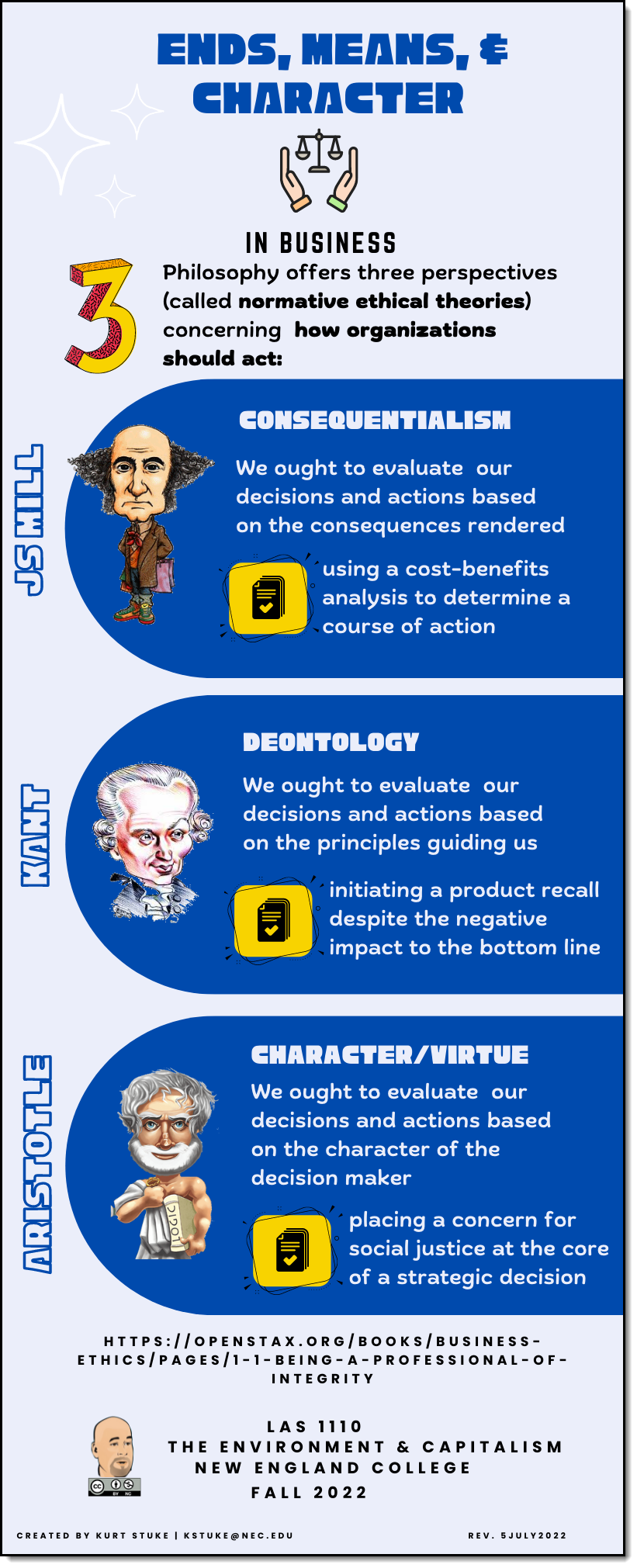
What is your perspective?

Interaction: Big Ag
"Big Ag," short for "Big Agriculture," is a term often used to refer to large-scale industrial agriculture, which involves the production of crops and livestock on a massive scale. Big Ag typically relies on modern technologies, extensive use of machinery, advanced genetics, and various inputs to maximize agricultural output.
Key Characteristics of Big Ag:
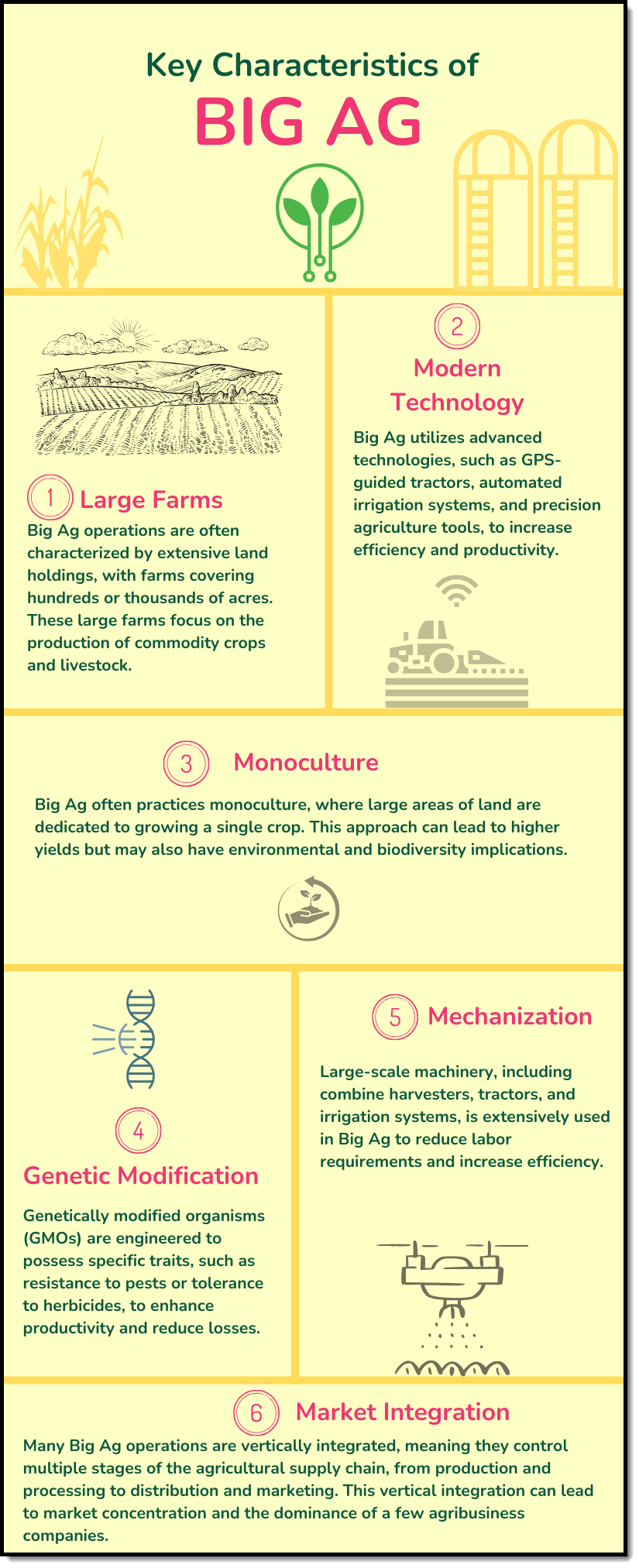
The Impact of Big Ag:
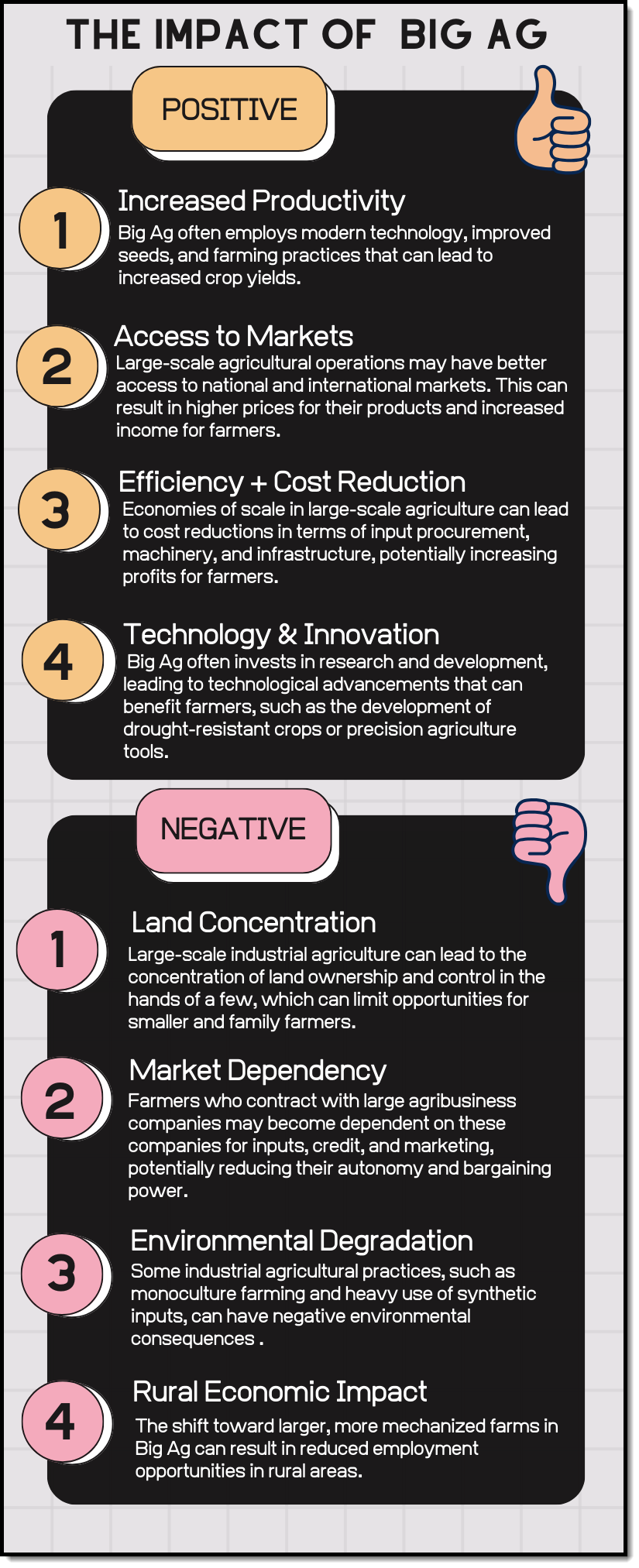
Consider GMOs:

Discussion Prompts:
- Given the facts above, is Big Ag and its leveraging of GMOs morally permissible? Pick one normative theory we have discussed and discuss the moral permissibility of engineering food.
- Do the health risks reported from GMOs outweigh the human need? Which normative theory are you employing to make sense of the issue?
- Which threat should be given priority: the threat to the environment as posed through current Big Ag practices or the threat to the human population as posed through current Big Ag practices?
Survey
